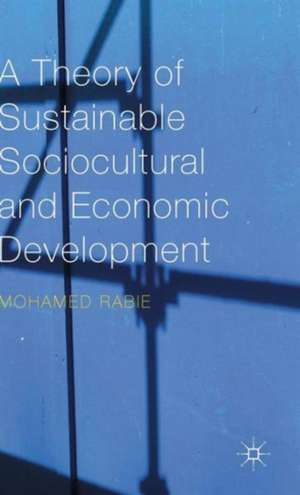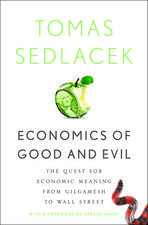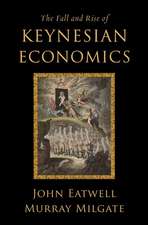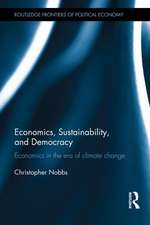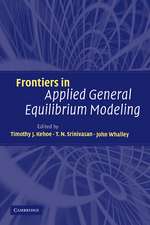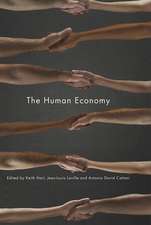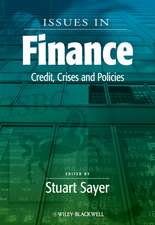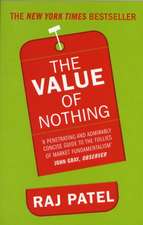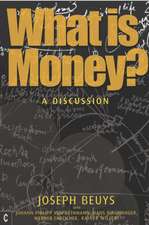A Theory of Sustainable Sociocultural and Economic Development
Autor Mohamed Rabieen Limba Engleză Hardback – 12 ian 2016
Preț: 641.38 lei
Preț vechi: 754.56 lei
-15% Nou
Puncte Express: 962
Preț estimativ în valută:
122.77€ • 133.40$ • 103.19£
122.77€ • 133.40$ • 103.19£
Carte tipărită la comandă
Livrare economică 21 aprilie-05 mai
Preluare comenzi: 021 569.72.76
Specificații
ISBN-13: 9781137579515
ISBN-10: 113757951X
Pagini: 243
Ilustrații: XI, 243 p.
Dimensiuni: 140 x 216 x 16 mm
Greutate: 0.45 kg
Ediția:1st ed. 2090
Editura: Palgrave Macmillan US
Colecția Palgrave Macmillan
Locul publicării:New York, United States
ISBN-10: 113757951X
Pagini: 243
Ilustrații: XI, 243 p.
Dimensiuni: 140 x 216 x 16 mm
Greutate: 0.45 kg
Ediția:1st ed. 2090
Editura: Palgrave Macmillan US
Colecția Palgrave Macmillan
Locul publicării:New York, United States
Cuprins
1. The Meaning of Development
2. Meaning of Sustainable Development
3. Culture and Society
4. Development of Human Societies
5. Economy and Society
6. Economy and Globalization
7. Perspectives on Development
8. Cultural Theory of Development
9. Obstacles to Development
10. Education and Development
11. Stages of Sociocultural Transformation
12. Toward Sustainable Development
13. A World in Transition
14. Concluding Remarks
2. Meaning of Sustainable Development
3. Culture and Society
4. Development of Human Societies
5. Economy and Society
6. Economy and Globalization
7. Perspectives on Development
8. Cultural Theory of Development
9. Obstacles to Development
10. Education and Development
11. Stages of Sociocultural Transformation
12. Toward Sustainable Development
13. A World in Transition
14. Concluding Remarks
Recenzii
"Rabie argues that unleashing the true potential of education holds the key to the emancipation of all societies. A charismatic educator and a luminary inspiration to generations of students in his own right, Rabie's insights as to how to enable the flourishing of young minds through education constitutes one of his most significant and memorable contributions in this excellent book." - Hilla Dayan, Professor, Amsterdam University College, Netherlands
"This book provides an uncompromising analysis of the underlying forces that shape our lives and the challenges that all of us - in a rapidly changing, globalized world - face. Its approach to societal development - focusing on culture - is a provocative and much-needed alternative to the neoliberal consensus." - Philip Leech, Senior Fellow, Centre on Governance, University of Ottawa, Canada
"Rabie reframes sustainable development as societal development that begins with culture rather than with economy. Looking beyond the dominant views in current development literature, he points out that no plan can lead to the economic development of a country without a similar plan which aims to transform culture. Sociocultural transformation has not been given due recognition in existing development theories. This book fills this gap." - Rohana Ulluwishewa, Author of Spirituality and Sustainable Development
"This book provides an uncompromising analysis of the underlying forces that shape our lives and the challenges that all of us - in a rapidly changing, globalized world - face. Its approach to societal development - focusing on culture - is a provocative and much-needed alternative to the neoliberal consensus." - Philip Leech, Senior Fellow, Centre on Governance, University of Ottawa, Canada
"Rabie reframes sustainable development as societal development that begins with culture rather than with economy. Looking beyond the dominant views in current development literature, he points out that no plan can lead to the economic development of a country without a similar plan which aims to transform culture. Sociocultural transformation has not been given due recognition in existing development theories. This book fills this gap." - Rohana Ulluwishewa, Author of Spirituality and Sustainable Development
Notă biografică
Mohamed Rabie was Distinguished Professor of International Political Economy at the Rabat School of Governance and Economics, Morocco. He has studied on four continents; taught at several universities including Georgetown University, USA, and Kuwait University; lectured at more than 80 academic institutions worldwide; and published 37 books and over 1,000 papers and articles. His interests, writings, and activities reflect a strong commitment to peace, freedom, and social justice.
Textul de pe ultima copertă
Why do some countries' economies struggle to develop, even when they are the focus of so much research and international funding? While recognizing that the obstacles facing poor nations are many and complex, Rabie proposes that the roots of most obstacles are sociocultural; thus, sociocultural transformation and economic restructuring can only be successful when treated as interconnected, mutually beneficial objectives. A Theory of Sustainable Sociocultural and Economic Development outlines an innovative model capable of identifying the major obstacles hindering poor nations' development in general, and the sociocultural and political obstacles in particular, placing them in their proper historical contexts, and addressing them comprehensively.
